- Home
- /
- Human Resources
- /
- Title IX
- /
- Information About the New...
Information About the New Title IX Regulations
Effective August 14, 2020, SUNY Niagara has a new policy and procedures for complying with new Title IX regulations.
Title IX: What Has Changed?
The new Title IX regulations, effective August 14, 2020, includes several changes to the law’s scope and the procedures colleges and universities must follow when notified of potential violations. SUNY Niagara already incorporates due process requirements under New York State’s Enough Is Enough legislation, including the opportunity to inspect and review the evidence and to appeal a hearing determination to an appeals panel. SUNY Niagara’s Title IX Policy governs claims of sexual harassment and sexual violence that fall under Title IX. The most significant changes include the following:
Limiting the physical jurisdiction of Title IX.
Previously, Title IX applied broadly, requiring schools to take action on harassing conduct even when that conduct occurred off-campus, or in SUNY Niagara programs abroad. The new Title IX regulations apply only in cases where the alleged misconduct took place within the United States, and the alleged misconduct took place within SUNY Niagara’s “education program or activity.” This means that conduct that occurs in locations outside of SUNY Niagara’s ownership or control, including off-campus locations, would not fall under Title IX, nor would conduct that occurs outside of the United States, even if it is part of a Study Abroad experience. Similarly, online conduct that does not use SUNY Niagara’s computers or networks would not fall under Title IX. It is important to note that individuals who experience sexual harassment or sexual violence in places or activities outside of the jurisdiction of Title IX may still report this under other SUNY Niagara policies and procedures.
Limiting who may file a complaint under Title IX.
In order to file a formal complaint, the complainant must be participating or attempting to participate, in an SUNY Niagara program or activity at the time the formal complaint is filed. This means that graduates, former students, or visitors to campus cannot file a formal Title IX complaint. It is important to note that these individuals may still report sexual misconduct under other SUNY Niagara policies and procedures.
Requiring actual knowledge of sexual harassment.
Previously, Title IX applied to sexual harassment that a school knew or should have known about. In order for schools to be responsible for sexual harassment under Title IX, the new regulations require that they be provided with “actual knowledge” of the harassment. This occurs when the College’s Title IX Coordinator or other individuals who have the authority to “institute corrective measures” receive notice of sexual harassment.
Requiring the filing of a formal complaint to initiate discipline
In order to proceed with disciplinary action for conduct and allegations that fall under Title IX, the College must be in receipt of a formal complaint that the complainant signs and submits electronically or in writing. If the Title IX Coordinator believes that an investigation is necessary to protect the safety of the complainant or the SUNY Niagara community, the Title IX Coordinator may file a complaint on the complainant’s behalf, even if the complainant does not wish to do so. In this case, the complainant will receive notice of any hearing dates, findings, or other relevant developments.
Providing notice to the respondent upon the filing of the complaint.
The College must provide the respondent to a complaint with notice of the allegations and the opportunity to secure an advisor of choice prior to any meetings or interviews under the Title IX process. It is important to note that criminal investigations are conducted separately from Title IX investigations and are not subject to the Title IX notice requirement.
Allowing an advisor of choice the opportunity for cross-examination.
Complainants and respondents to a complaint may have an advisor of choice, who may ask questions of the other party after the hearing officers conduct their own questioning. Please note that Title IX regulations do not allow parties to conduct cross-examination directly. The advisor of choice may be an attorney, but this is not required. The advisor may be anyone the party chooses, including the party’s parent, sibling, or other relative, or a friend, another student, or an SUNY Niagara employee. SUNY Niagara will provide an advisor if the party does not have one.
Supportive Measures
Individuals who have experienced sexual violence and individuals who have been accused of sexual violence have the right to receive supportive measures from the College. This is the case regardless of whether a person has decided to file a formal Title IX complaint or is eligible to do so. Supportive measures are non-disciplinary and non-punitive. As appropriate, supportive measures may include, but are not limited to, the following:
- Counseling
- Extensions of deadlines or other course-related adjustments
- Modifications of work or class schedules
- Campus escort services
- Restrictions on contact between the parties (no contact orders)
- Changes in work or housing locations
- Leaves of absence
- Increased security and monitoring of certain areas of the campus
How to Report Sexual Violence
SUNY Niagara provides information about support and reporting. SUNY Niagara students may consult confidentially with a YWCA Victim’s Advocate for support, advocacy, and assistance by calling or texting 716-870-9726 or email at rsandle@ywcanf.org. Employees may contact our employee assistance program; FREE and CONFIDENTIAL at 1-800-252-4555 or at www.higheredeap.com.
- Anyone who has experienced sexual violence at SUNY Niagara may report this to the Public Safety Office (available 24 hours per day, 7 days per week) at (716) 614-6400. More information is available at https://www.niagaracc.suny.edu/security/.
- Because acts of sexual violence may violate criminal law in addition to SUNY Niagara policy, complainants may request that Niagara County Sheriff’s Office conduct a criminal investigation of allegations within its jurisdiction. The criminal investigation is separate from a Title IX investigation.
- A student or employee who would like more information about reporting a Title IX violation can initiate the process by scheduling a consultation with a Title IX Coordinator, which serves as SUNY Niagara’s Title IX office. A Title IX Coordinator will discuss supportive measures as well as options for a criminal investigation and a Title IX investigation. If the student or employee wishes to pursue the Title IX process, the Title IX Coordinator will provide a complaint form.
- Students should contact the Vice President of Student Services at 716-614-6241.
- Employees should contact the Assistant Vice President of Human Resources at 716-614-5951.
Mandatory Training for Title IX Personnel
The new Title IX regulations require that Title IX Coordinators, investigators, and decision-makers receive training on topics that include the following:
- The definition of sexual harassment,
- The scope of the college’s education program or activity
- How to conduct an investigation and grievance process including hearings, appeals, and informal resolution processes
- How to serve impartially, including by avoiding prejudgment of the facts at issue, conflicts of interest, and bias
- Any technology to be used at a live hearing
- Issues of relevance of questions and evidence, including when questions and evidence about the complainant’s sexual predisposition or prior sexual behavior are not relevant
- Issues of relevance in creating an investigative report that fairly summarizes relevant evidence.
SUNY Niagara is a member of SUNY’s Student Conduct Institute (SCI), and individuals who are required to receive training must complete SCI training prior to investigating and hearing cases. Information about training is available at https://system.suny.edu/sci/training/.
Contact
Catherine Brown
Assistant Vice President of Human Resources
Title IX Coordinator (Employees)
Phone: 716-614-5951
Email: cbrown@niagaracc.suny.edu
Location: A-264
Julia Pitman
Vice President of Student Services
Title IX Coordinator (Students)
Phone: 716-614-6241
Email: jpitman@niagaracc.suny.edu
Location: A-172
John D Strong
Chief Diversity and Equity Officer
Phone: 716-614-5900
Email: jstrong@niagaracc.suny.edu
Location: H-162

